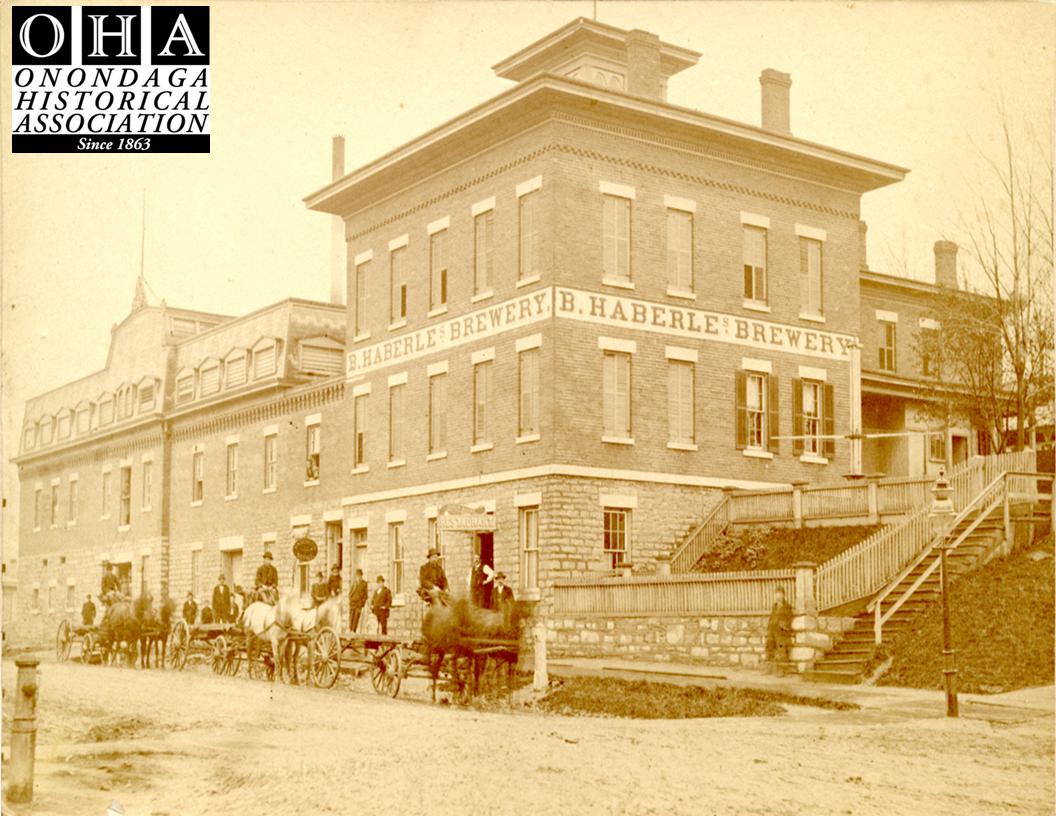
In July of 1870, there was an unusual trial at Syracuse’s old City Hall. John Cappel was charged with selling intoxicating beverages on a Sunday, which was illegal at the time. The defense for Cappel held that the beverage in question, lager beer, was legal since it was not an intoxicating drink.
Local Brewer Benedict Haberle offered testimony for the defense and stated that he could drink 30 to 40 glasses of lager beer a day and it did not intoxicate him. Jacob Pfohl declared that he could personally consume between one and two gallons without feeling inebriated. Of course, both were heavily engaged in the production of beer. Breweries were a growing part of Syracuse’s economy in those years; Haberle said his output was 1500 barrels a year and Pfohl admitted to manufacturing between 4,000 to 5,000 annually. Others offered similar evidence, most of whom were involved with the brewery industry.
The prosecution countered with various witnesses. Mr. J. S. Ball of Dewitt swore that lager, “did not help me to be more intelligent” and that 2 1/2 glasses of Haberle’s brew, “made my way crooked.” Others, some with ties to the temperance movement, said just a few glasses made them drunk.
The trial became a locally celebrated encounter between Syracuse’s brewing industry and temperance advocates. By 1870, alcohol consumption had risen substantially. There were reportedly 100,000 saloons in the nation (about 1 for every 400 men, women and child). In their efforts to attract a wide array of customers, many owners did not discourage gambling, prostitution, sales to minors, public drunkenness, and violence that was drawn to taverns at the time. As a result, a growing number of political and social organizations were calling for the prohibition of all alcoholic drinks in the United States.
However, at this time in Syracuse, beer claimed a victory and Mr. Cappel was acquitted by the jury, a minor setback for the anti-drinking movement. The movement grew to embrace millions of advocates and finally achieved its goal in 1919 with the ratification of the 18th Amendment, which prohibited “the manufacture, sale, or transportation of intoxicating liquors” throughout the United States; in other words, Prohibition! But until then, the brewery business, in both Syracuse and elsewhere, would generally enjoy unprecedented popularity.
– By Dennis Connors, OHA Curator of History

